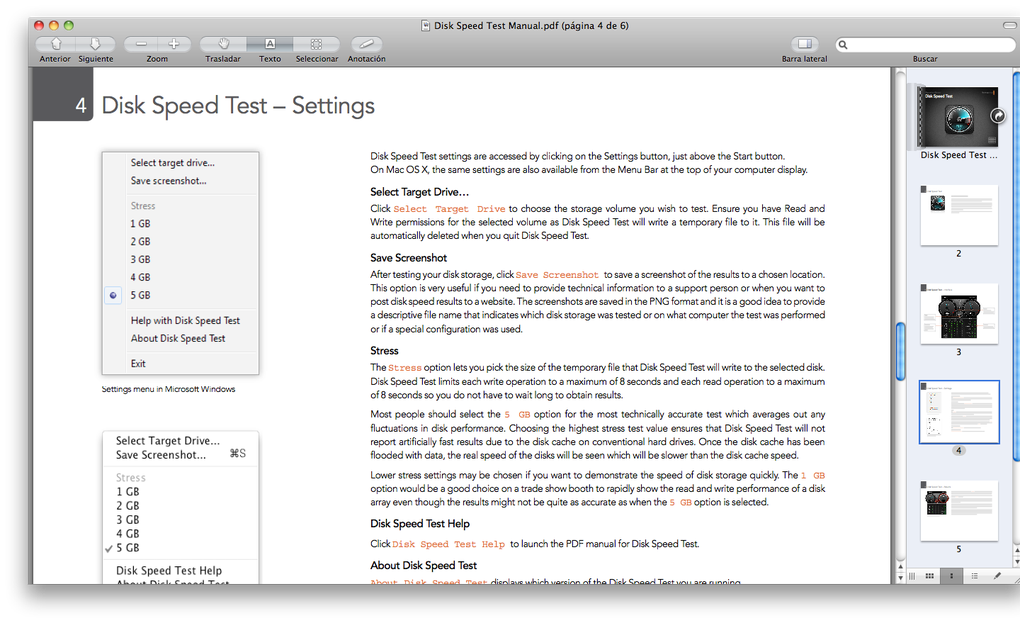

So the total for a compact external 1 TB SSD with rather inferior performance is around £250-300, more than twice the cost of SATA.Īpple’s cost for additional internal storage on M1 models works out at £400 per TB.
#Blackmagic disk speed test download mac plus#
A decent quality M.2 SSD such as a Samsung 970 EVO Plus is another £150 per TB. I’ve just priced up a similar combination, and the enclosure alone will cost you anything between £80-140, to which you may need to add the cost of a good TB3 cable. Yes, it seems a bargain if you think in SATA pricing of a little more than £100 per TB, but of course that’s not what TB3/M.2 costs. Neither benchmark offers mixed writes and reads, nor random patterns which might better reflect real-world operation. In limiting transfers to a maximum of 64 MiB size, the ATTO figures don’t give any information about performance when writing larger amounts, which is the performance area in which Blackmagic operates.

These suggest that the methods and settings used by the Blackmagic and ATTO benchmarks are sufficiently different as to result in such contrasting results. Writing occurred at 2.4 (10 MB) to 2.9 GB/s (10 GB), which is at the upper end of the T2’s performance, but reading was significantly faster at 10.8 (10 MB) falling to 3.1 GB/s (10 GB).
#Blackmagic disk speed test download mac mac#
On my M1 Mac mini, results were quite different. Those results are broadly consistent with those found using Blackmagic. Reading the same files delivered 6.2 GB/s for 10 MB, and 1.5 GB/s for 10 GB. On my T2-equipped iMac Pro, writing a 10 MB file occurred at 1.8 GB/s, rising to 2.6 GB/s for 10 GB (a thousand times the size). I therefore modified that to perform timed writes and reads of files of set sizes. By a strange coincidence one of my unreleased utilities, Vandal, has a feature which creates files of arbitrary size and content. However, when apps are run using Rosetta, Mach times are expressed as if the app was running on an Intel processor, so that seems most unlikely to lead to potential error.įaced with this apparent conflict, the only resort is to my own code. Could that have an effect, perhaps? One potential problem is that the M1 uses a different Mach timebase from Intel processors. Those ATTO benchmarks look impressive, but do they make sense? It’s worth noting here that this app isn’t yet Universal, so runs with Rosetta 2 translation. Write speed has fallen fairly uniformly to around 2.5 GB/s, while read speeds have reached nearly 20 GB/s by a size of 24 MiB. Those results are for a single stream increase the number of streams to 4, and the results are even more curious. Note that Blackmagic is normally run with ‘stress’ set at 5 GB. While writes stabilise at just under 4 GB/s, even at 64 MiB, reads are continuing to increase in speed, at just under 10 GB/s.

Results for my M1 Mac mini, with a 500 GB internal SSD, are very different. Once read and write sizes exceed about 4 MiB, transfer speeds settle at around 2.8 GB/s for reads, and 3.4 GB/s for writes. Before showing those from an M1 model, this is a typical set of results from my iMac Pro: I’m very grateful to Jay, who alerted me to different figures being reported by ATTO Disk Benchmark (available on request from ATTO). Blackmagic Disk Speed Test, available from the App Store, is now a Universal App, but returns read and write benchmarks of between 2.7 and 3.5 GB/s, which are very similar to those of a T2 model. One clear conclusion for the moment is that relative performance of M1 Macs depends on which benchmark you use. Their one crucial performance area which isn’t as clear is their internal storage: I’ve seen a range of benchmark results which either set them on a par with T2-equipped Macs like my iMac Pro, or just seem puzzling. There now seems no doubt that, by any standards or comparisons, Apple’s first Apple Silicon Macs, its M1 models, are wickedly quick.


 0 kommentar(er)
0 kommentar(er)
